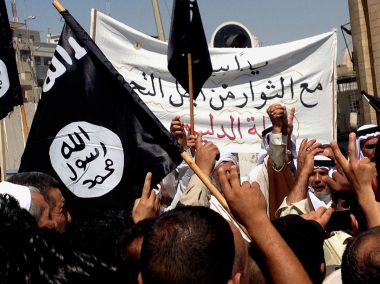ISIS crisis in Iraq: Is this the start of a new chemical war?

Alarming photos now circulate of what seems to be the aftermath of a chemical attack allegedly perpetrated by the group Islamic State of Iraq and Syria or ISIS. According to a Middle East watchdog, these chemical weapons are believed to be from Saddam Hussein's arsenal.
Images from the Middle East Review of International Affairs (MERIA) show wounds inflicted on the victims last July in the village of Avidko, in the eastern part of Kobani, which is now the center of the seemingly unending fight between the Kurds and Islamic State terrorists. The images also show details of the wounds, which look like burns with white spots. According to reports, the Kurdish victims last July 12 died without any signs of bullet wounds or external bleeding, which clearly indicates the use of chemical weapons.
Fox News spoke to Jonathan Spyer, the editor of the MERIA Journal and author of the report, who said that the Islamic State forces used what "appears to be a case of mustard gas or some kind of blistering agent."
According to New York Post, this happens to be the same destructive gas Saddam Hussein used in the 1988 series of bombing and killings of Kurds in Halabja. The Islamic forces allegedly seized poison gas from an old arsenal in Northern Iraq which they transported to Syria.
Spyer further said, "It is fairly concerning that, if the pictures are genuine -- and I have no reason to believe they are not -- then this [use of chemical weapons] is looking clearer and clearer."
A terrorism analyst for New York research institute The Clarion Project, Ryan Mauro, shared his thoughts about the issue, stating that while conventional weapons are deadly, the use of chemical weapons can produce shock and anger.
He said to Fox, "The only difference is how the world and international media reacts to chemical weapons with shock and outrage, while stories of greater damage with conventional weapons have become so common that their usage is no longer considered 'news.'"
This knowledge of chemical weapons sends fear to Syrian Kurds that might help ISIS in enforcing compliance and terror to rival militant groups.











